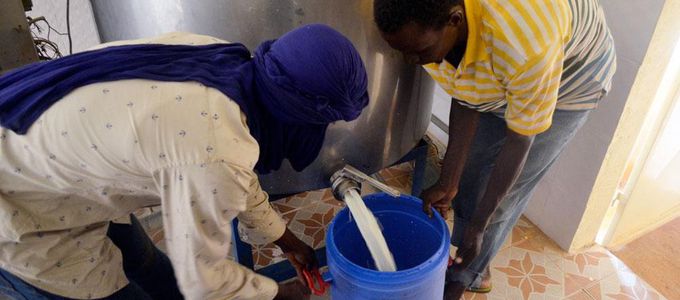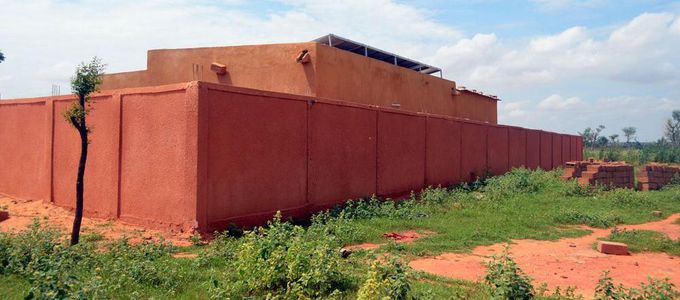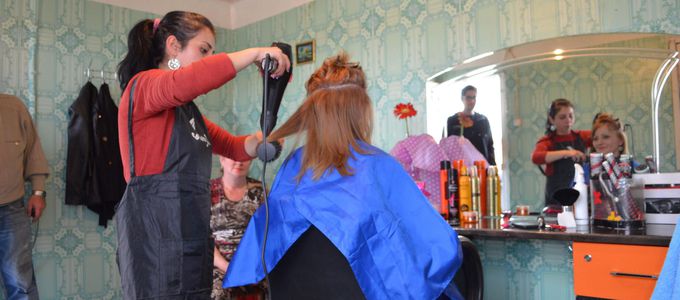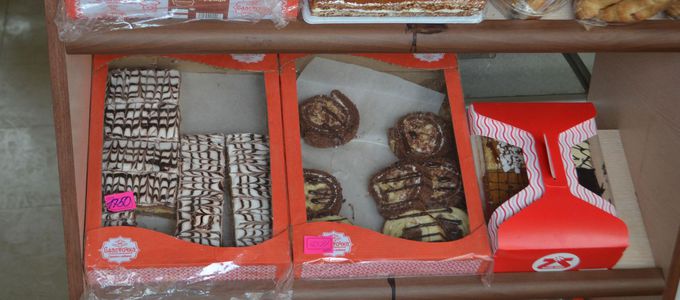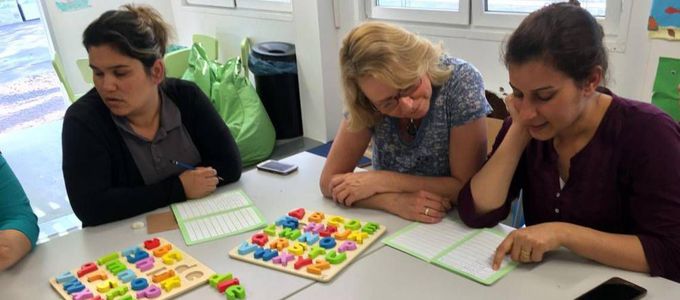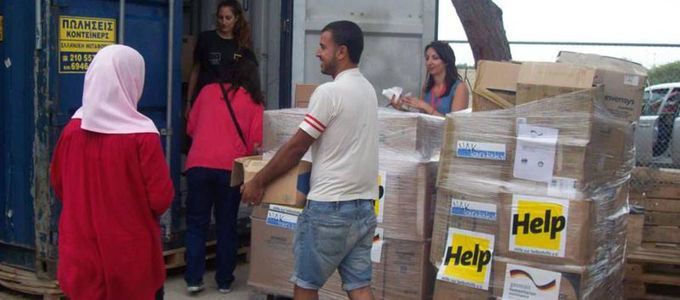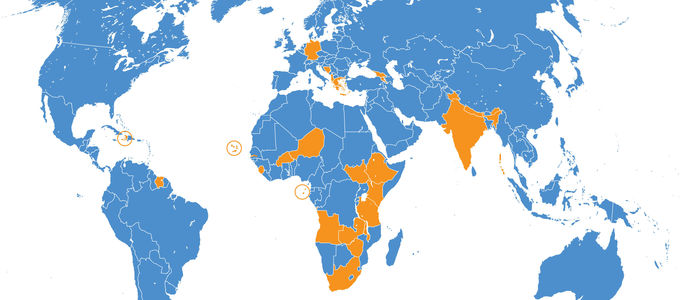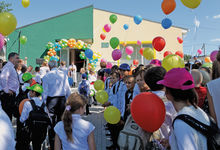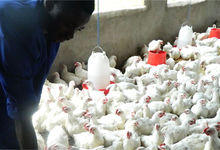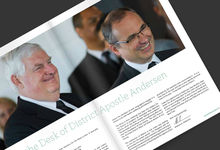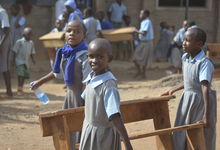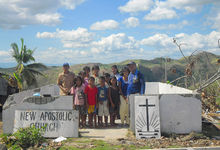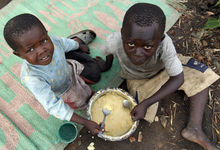Helping people before they are forced to flee
“Building bridges” is the motto NAK-karitativ has given its 2016 annual report. The focus of the charity is on aid not only for those who have been displaced, but also for people in their homeland so that they do not have to leave in the first place.
“’Building bridges” is how one could summarise the work of the aid organisations of our Church. This applies especially to refugee aid,” Chief Apostle (ret.) Wilhelm Leber writes in his opening message. He is the patron of the charity.
With the wave of refugees from the Near East, Afghanistan, and Africa Europe was faced with a huge challenge in the year 2016, the managing director of the charity, Jörg Leske, says in his foreword. In future, war, hunger, and the destruction of the environment will force even more people from their home.
Aid – here, there, and on route
How can NAK-karitativ help? Jörg Leske sees three avenues:
- improvement of the living conditions in the countries from which the people are fleeing.
- providing for and supporting the people during their migration.
- assistance when they arrive in their country of destination.
The annual report gives some examples of smaller and larger projects, such as the voluntary aid project for displaced people in Dortmund (Germany), which provides language courses, help with school enrollment, doctor’s appointments, dealing with authorities, finding accommodation, and providing donations in kind. Or the collaboration with a college in Wuppertal which assists young refugees in gaining a foothold and breaking into the working world.
One of the biggest projects in 2016 was the collaboration with the partner organisation Help – Hilfe zur Selbsthilfe (“Help—help for self-help”) in Greece. In March 2016 about 55,000 people were stranded in Greece when the Balkan states shut borders, closing off refugee routes. NAK-karitativ helped some 5,000 families and more than 19,000 children by providing them with clothing and hygiene items. Two thousand families were provided with temporary shelter and 400 psychological sessions were offered to help people process trauma.
Sustainability is the priority of projects designed to improve living conditions in the countries themselves. Major projects in 2016 falling under this category were the development of a milk collection and processing facility in Niger, the development of small businesses in Armenia, the construction of a production facility for reusable feminine hygiene kits, as well as ensuring a safe water supply for thirteen villages and four hundred students, both in Kenya.
Aid in numbers
In the 2016 fiscal year the executive board approved a total of 21 new projects with a total volume of well over 2.6 million euros, most of which run for a period of several years. Forty-nine projects from previous years are still running.
The focus of the organisation’s commitment is in Africa, where a good two-thirds of the funds go. The remainder was spent for measures in Europe (14 per cent), Asia (12 per cent), and America (7 per cent).
In total, NAK-karitativ spent nearly 2.6 million euros last year. Of this, 88 per cent were used to fund aid projects, and the rest covered staff and administrative costs.
The funds for these projects came from individual donations (1.5 million euros), but also from sponsorships (270,000 euros), bequests and gifts, and long-term campaigns (each about 180,000 euros).
In comparison to the previous year there has been a decline in donations. This corresponds to a general trend. In the year 2015 with the earthquake in Nepal and the arrival of the refugees in Germany people were generally more willing to give money to charity.
Help for volunteers
An important approach of NAK-karitativ is the involvement of the local partners. That means strengthening these partners for the long-term and having them trained by external specialists. In 2016 there was a workshop over several days on project design and impact analysis for NACRO, the aid organisation in Zambia.
In 2017, the same workshop will be given for KUMEA, the partner in Nairobi. In addition, NAK-karitativ wants to continue developing its work in the priority countries Zambia, Malawi, Kenya, Gambia, and Armenia and expand its partner network.
Finally, a strategic workshop by the board of directors is planned in 2017 for the entire NAK-karitativ team. The aim is to define common objectives for next year and to find ways to respond to future challenges effectively.
Article info
Author:
Date:
Keywords:
Andreas Rother
01.11.2017
Africa,
Kenya,
Malawi,
Niger,
Zambia,
Asian,
Armenia,
Europe,
Germany,
Greece,
Central America,
South America,
Aid agencies,
Social commitment,
International


